Home » Posts tagged 'Greek philosophy'
Tag Archives: Greek philosophy
An Interview with our Vilnius Colleagues
As we announced this autumn, Research Council of Lithuania had decided to fund a research project on the reception of ancient philosophy in Vilnius University in the 20th century. Doc. dr Jonas Čiurlionis (Vilnius University) is the PI in this project, who leads the team consisting of dr Mindaugas Stoškus (VU) and dr hab. Tomasz Mróz (University of Zielona Góra).
This post is to advertise the interview with M. Stoškus and J. Čiurlionis, who talked about the project, its premises and objectives. The interview in written form has been recently published on the VU Faculty website in Lithuanian.

Both, J. Čiurlionis and M. Stoškus, focusing on Lithuanian period in the history of VU (1940-now), emphasised the need of philosophers to confront their outlooks, methods, and the very understanding of what philosophy is with ancient philosophers. They both spoke about their lecturers and how they had referred to the Greeks. We cannot agree more with them regarding their views on significance of Greek philosophy for each Western philosopher, philosophical current and national philosophical tradition. Thus it is important to research and assess the impact of Greek ideas on more recent philosophers, for the history of philosophy is not a linear development, but a constant reference to the roots of philosophical thinking. And the core aim of the project is to research who of the VU philosophers in the 20th century, why and how referred to and reflected on ancient philosophers.
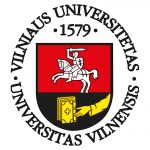
Ancient Wisdom in a Lithuanian Interpretation
Connections between Ancient Φilosophy Reception research group at the University of Zielona Góra and the scholars of Vilnius University have been many times documented on this website. This time we want to report on an Erasmus+ teaching visit of a Lithuanian scholar, Mindaugas Stoškus from Vilnius, in the Institute of Philosophy (UZ). He was our guest between 10th and 14th of April.
Among dr Stoškus’ teaching acitivities, there was a lecture titled:
What Can We Learn from the Ancient Concept of Wisdom?
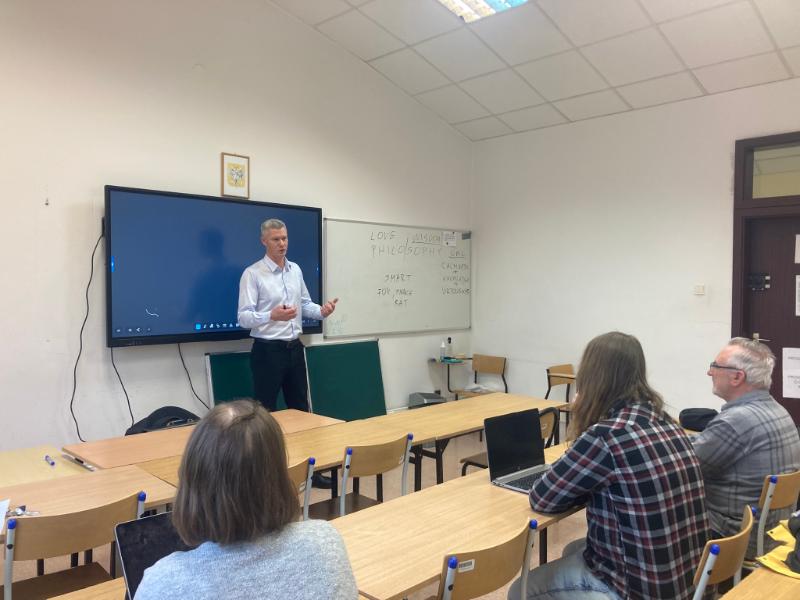
This lecture was delivered twice, during the classes of Philosophical Counselling (above on the photo by A. Habura) and on the course of the History of Ancient Philosophy. At the beginning of his lecture, Dr. Stoškus discussed etymological issues, focusing on the very notion of wisdom. The he took an attempt to enumerate the attributes of the wise man, as the Greeks saw them. They included, for example, knowledge, experience, ability to justify judgments, and desire to disseminate wisdom. Dr. Stoškus discerned philosophical wisdom from its sophistic version and, in conclusion, emphasised the essential connection between theory and practice of wisdom.
Greek philosophy still fares well!
A Biographical Sketch on Henryk Jakubanis
Mariam Sargsyan, an AΦR researcher focusing on the legacy of H. Jakubanis, has recently published a paper Henryk Jakubanis (1879–1949) – a Historian of Greek Philosophy Between Kyiv and Lublin, which aims at discussing the entire academic path of this researcher of ancient philosophy, presenting his work in both periods of his life, connected to Kyiv and Lublin. The paper was published in Polish and can be downloaded here.
It is not insignificant to remark that Sargsyan’s paper has been published in an issue devoted to classical philology of “Roczniki Humanistyczne” (“Annals of Arts”, Vol. 72 No. 3, 2024, pp. 79-97), a journal edited at the Catholic University of Lublin (KUL), where Jakubanis used to work for over two decades of his life.
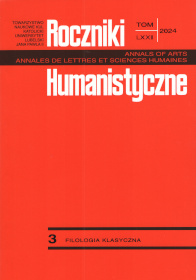
Jakubanis’ life began in the Russian Empire, and Sargsyan presents his family and his initial education it the gymnasium, with a focus on classical languages and humanities. Then the story proceeds to the Kyiv period of his life, including a brief sketch of the history of St Vladimir’s Imperial University of Kyiv and the researchers of the history of philosophy there, with an emphasis on Jakubanis’ academic supervisor, Alexei Gilarov (1856-1938). During his Kyiv period Jakubanis won a scholarship for a study visit in Germany, notably in Berlin, and was active as a university lecturer, teacher at various courses extra muros, and started to develop his academic and research career.
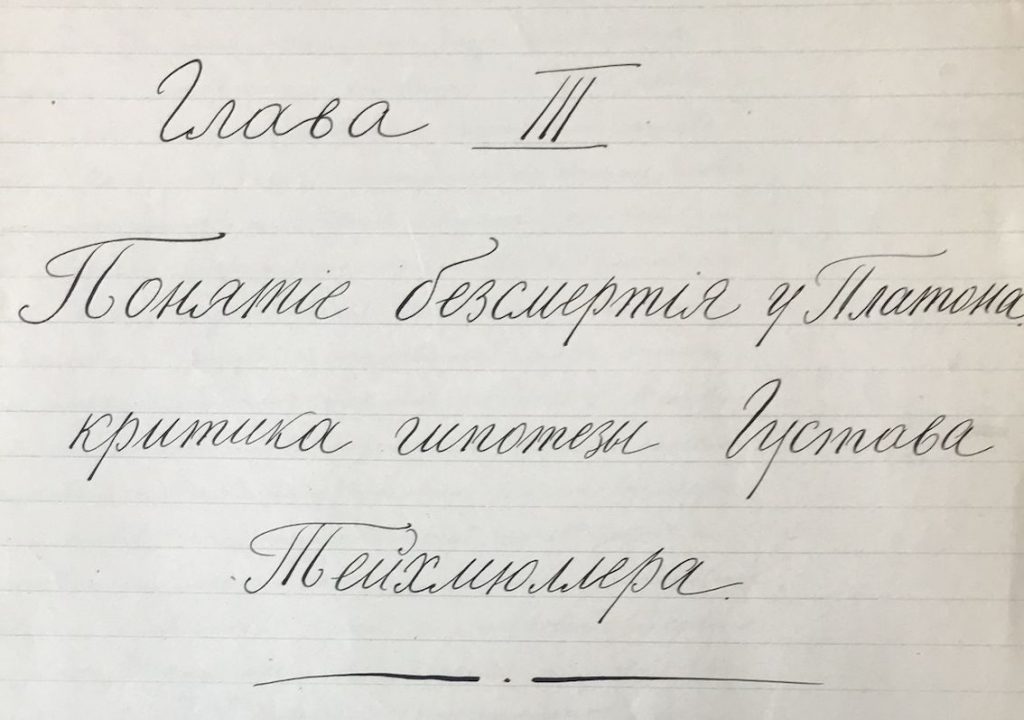
The Lublin period began in 1922 with Jakubanis’ repatriation from the then Soviet Ukraine to Lublin in the independent Republic of Poland. Thanks to the support of Tadeusz Zieliński (1859-1944), his former examiner in Kyiv, Jakubanis was hired at the University of Lublin. His lectures and seminars there, his life during the war, his works and impact are further discussed in the paper.
To sum up: Jakubanis spent 26 years of his life in Kyiv and 27 in Lublin where he died in 1949. These two periods were almost equal in terms of time, yet they were quite different. In Kyiv he composed most of his works and was formed as a researcher and teacher in classics in general and in the history of ancient philosophy in particular, while in Lublin he was rather occupied with university life and lecturing, and it did not allow him to focus on researching and publishing. For his entire life, however, he remained faithful to his interests in ancient philosophy and, according to his students, spared no energy to disseminate his knowledge and expierience in this field.
“Oral History and the Classics” Team in Katowice
On Feb. 27th, 2024, Oral History and the Classics project team enjoyed the honour to visit Professor Bogdan Dembiński in the Library of The University of Silesia (Uniwersytet Śląski, UŚ) in Katowice. Professor Dembiński is another Polish specialist in Greek philosophy who has agreed to give an interview which will be included in the Oral History and the Classics collection on the website of the University of Hradec Králové. In December 2023, as we have already announced, a similar interview was shot with prof. Andrzej Wesoły in Poznań.
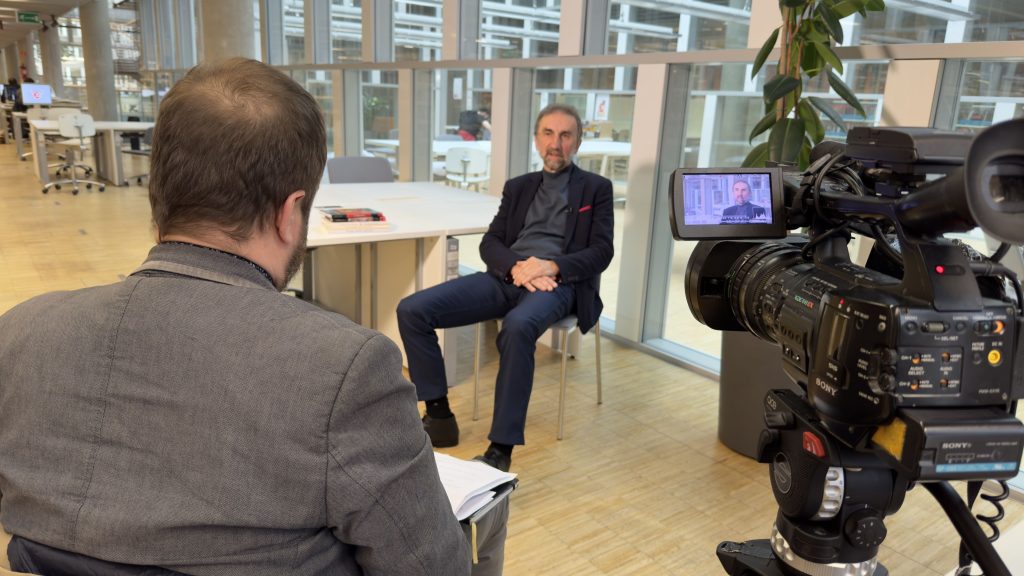
Bogdan Dembiński is currently a professor at UŚ, where he has taught and done his research work on Greek philosophy for almost four decades. Tomasz Mróz, who carried out the interview, in the last decade of the 20th century had been a participant in his lectures on ancient thought. The University of Silesia is not the only institution where prof. Dembiński delivers courses in philosophy. He teaches, for example, at The Karol Szymanowski Academy of Music in Katowice. He greatly appreciates this opportunity to introduce philosophy to the audiences who represent a different type of sensibility than philosophy students.
Having graduated in philosophy at the Catholic University of Lublin (KUL), Bogdan Dembiński returned to his home region of Silesia and received his Ph.D. on a thesis devoted to the philosophy of Martin Heidegger (1987). Apart from his university teachers it was Heidegger who induced him to focus on the everlasting legacy of Greek philosophy. Consequently, his postdoctoral thesis had Plato’s theory of ideas as its topic (1998) and subsequently Plato became the most important subject of his research. We shall add that prof. Dembiński was granted a title of the full professor in 2011 and then became a member of the Polish Academy of Arts and Sciences in Kraków.
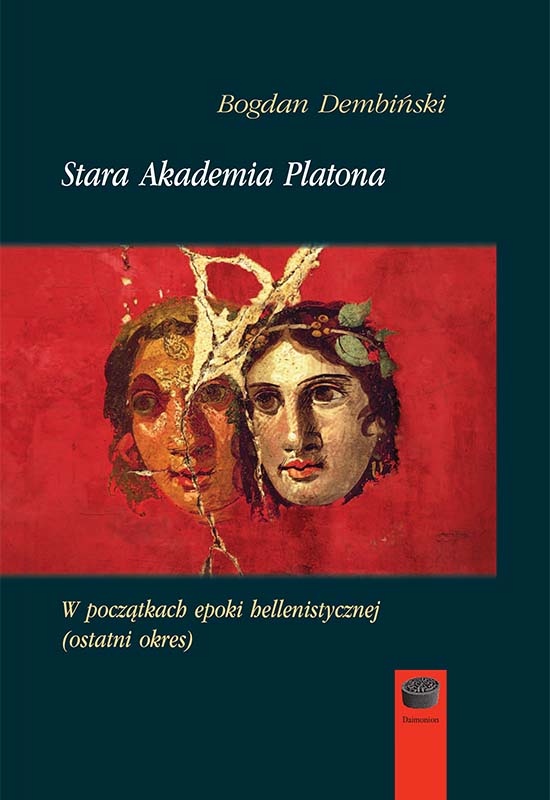
The list of books on Plato, which were authored by Bogdan Dembiński, includes: Teoria idei – ewolucja myśli Platońskiej [Theory of Ideas – the evolution of Plato’s thought], 1997 and re-editions; Późna nauka Platona – związki ontologii i matematyki [The Late Philosophy of Plato – relations between ontology and mathematics], 2003; Późny Platon i Stara Akademia [The Late Plato and the Old Academy], 2010; Stara Akademia Platona [Plato’s Old Academy], 2018.
Prof. Dembiński spoke about his academic curriculum and emphasised his current involvement in scientific activities of the Copernicus Center for Interdiciplinary Studies, founded by prof. Michał Heller, the recipient of the Templeton Prize. In Dembiński’s view, ancient Greek reflection on the nature and cosmos should be continuously referred to, not only by philosophers, by also by the representatives of contemporary natural sciences, theoretical physics and cosmology, for profound Greek ideas still have the power to stimulate research in many fields.
When the whole recording is edited and furnished with English subtitles, it will be make public and available on the project’s website. The interview meeting with prof. Dembiński would not be possible without his kind consent and hospitality of the UŚ Library staff. The interview was carried out by T. Mróz, while Jan Kadeřábek, a cinematographer and a cameraman, took care of all the technicalities.
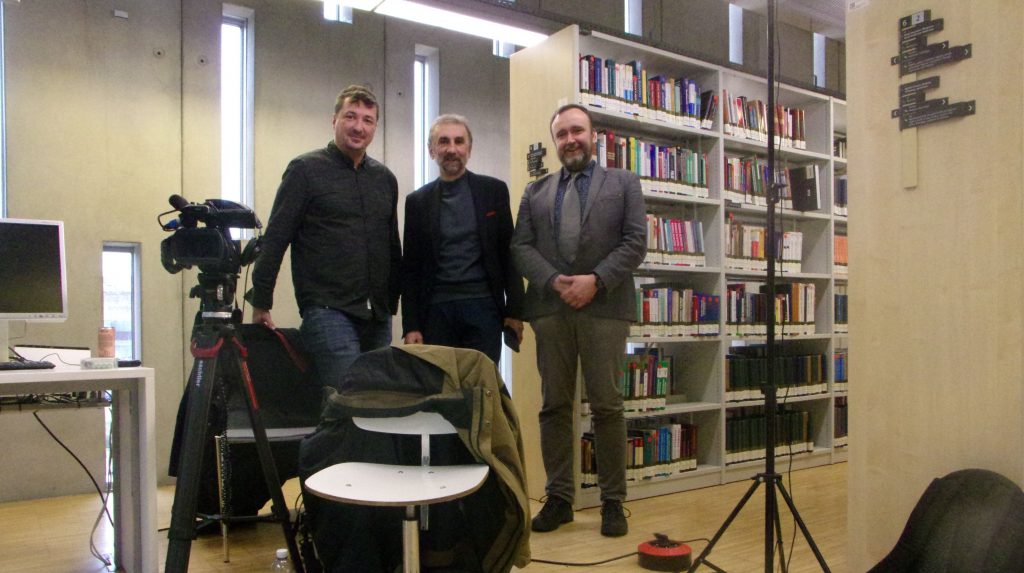
“Oral History and the Classics” Team in Poznań
On Dec. 5th, 2023, Oral History and the Classics project team enjoyed the honour to visit Professor Marian Andrzej Wesoły at his home, in the vicinity of Poznań. Prof. Wesoły agreed to give an interview which will be included in the Oral History and the Classics collection on the website of the University of Hradec Králové.
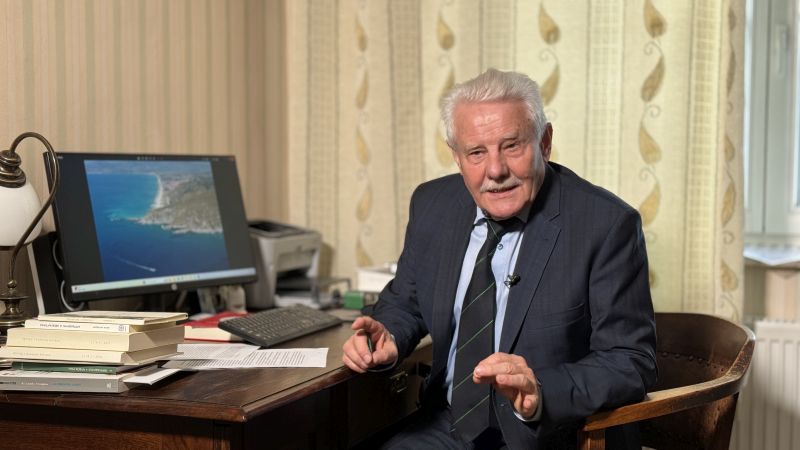
Marian Wesoły is currently a professor emeritus of Adam Mickiewicz University in Poznań and lectures at the Jacob of Paradies Academia in Gorzów Wielkopolski. His entire academic career in Poland was connected to Poznań and Adam Mickiewicz University. His doctoral (1977) and postdoctoral (1992) dissertations were devoted to the history of Greek philosophy. In 2008 he received the title of a full professor. He was granted several foreign scholarships, e.g. in Italy (1980: University of Padova, 1983: Italian Institute for History in Naples, 1997: Villa I Tatti), Germany (1986/87: University of Tübingen), and Greece (1993, 2000, 2012: Academy of Athens). Prof. Wesoły is a co-founder of the „Peitho. Examina Antiqua” journal. For 20 years he has regularly participated in the Eleatica-Symposia, initiated by Prof. Livio Rossetti at the Alario Foundation in Ascea, close to the ruins of ancient Elea/Velia. Finally, we should mention that on the 100th anniversary of the Adam Mickiewicz University in Poznań (2019) he was awarded Knight’s Cross of the Order of Polonia Restituta.
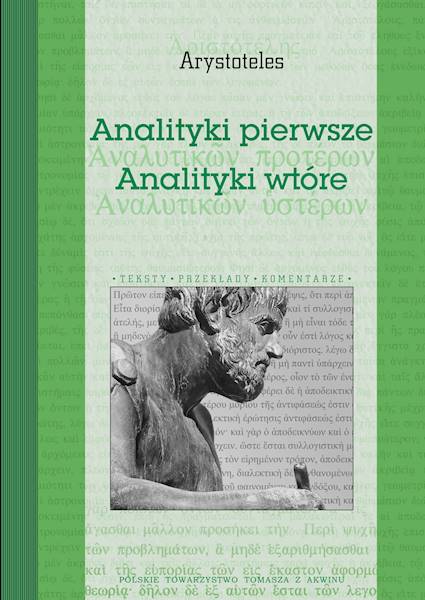
Prof. Wesoły is a specialist in Greco-Roman and Byzantine philosophies. In his numerous works he attempts to combine philological analyses with philosophical interpretation. Moreover, he is active as a translator and one of his most recent productions is a bilingual edition and commentary of Aristotle’s Analytica Priora et Posteriora (2020).
During the interview prof. Wesoły reflected on his academic and research curriculum, but also shared his views on perspectives of his discipline, on political constraints in researching ancient philosophy, recalled his memories of the great scholars whom had the opportunity to meet and with whom he collaborated etc. When the whole recording is edited and furnished with English subtitles, it will be make public and available on the project’s website.
The interview meeting with prof. Wesoły would not be possible without his kind consent and warm welcome of the team members by his family at their home. Those were Tomasz Mróz and Jaroslav Daneš who carried out the interview, while Jan Kadeřábek, a cinematographer and a cameraman, took care of all the technicalities.
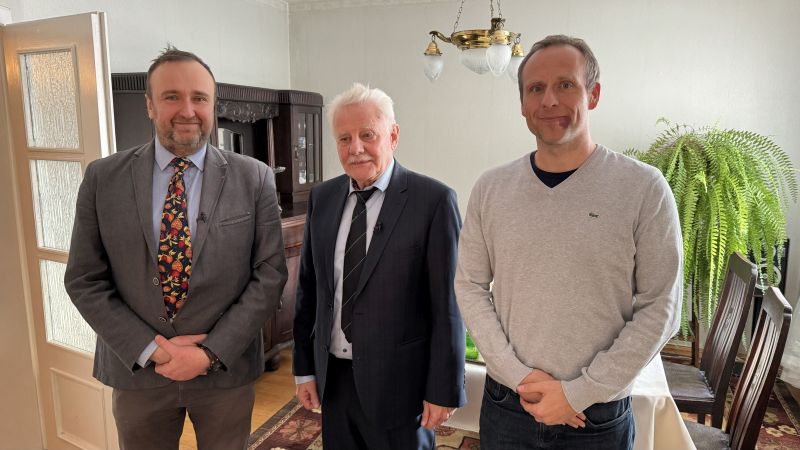
Recent commentaries